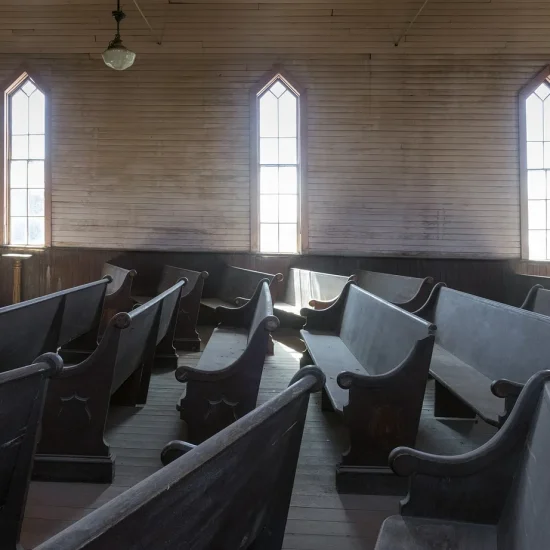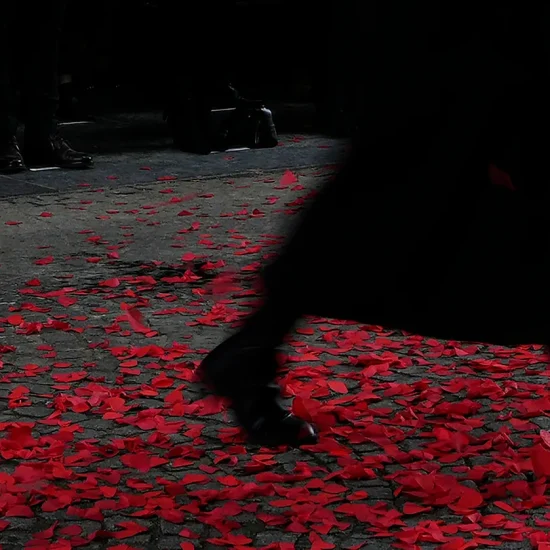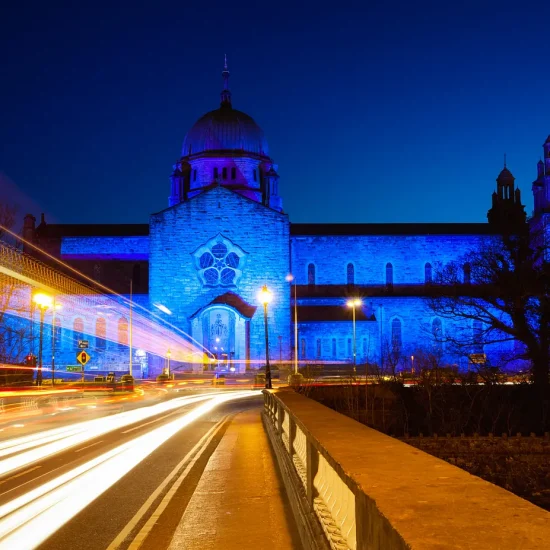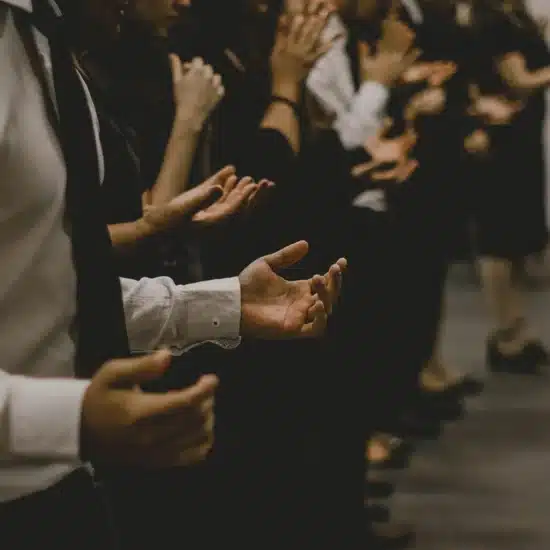
A benediction is just a fancy word for a “spiritual blessing.” A well-known one is the Aaronic Blessing from Numbers 6:24–26. As a pastor, we’re asked to pray more than most, so these are helpful when leading the many worship services that fill our calendars — from Sunday mornings to mid-week funerals. While biblical benedictions are rich, I sometimes write my own. One I’ve used in recent years at my current church is this: “May the Lord our God be your anchor in joy and in pain, with you now and forevermore, until the very end of the age. Amen.”

Rev. Dr. James Ellis III
I hope they can hear in my voice that I mean each word, declared before dismissing them to the narthex for assorted cookies, coffee, and conversation. The intention is to send them out to be valiant for the Lord, commemorating life’s joys while also courageously facing the sadness, chaos, pain, and suffering that will come. This is part of why Christians gather regularly — to praise God, learn from His Word, fellowship with one another, and serve. Together, we strengthen our resolve to live in such a way that we can earnestly declare, in the words of that great hymn: “My Comforter, my All in All / Here in the love of Christ I stand.”
One area where Christians in the U.S. could stand to grow is in understanding our covenant kinship, which binds us to believers of “all kinds of kinds,” to borrow the wise words of Miranda Lambert. Even those who reject Christ are often baffled by how poisonous we can be to each other. Their hearts are not yet ignited by the Spirit’s flame — bringing conviction, confession, repentance, and clarity — but they still recognize that healthy families don’t behave the way we sometimes do. Some of us should reexamine why so much of the “fruit” we produce in our relationships with fellow Christians is rotten.
I’ll leave the specifics of how the end of days might look, smell, or feel to people like Randy Alcorn and his book Heaven, or Brian K. Blount, the retired New Testament scholar, whose book Can I Get a Witness?: Reading Revelation through African American Culture is worth reading. But this I do know: heaven will be a family reunion. Picture it — between bites of overcooked hamburgers, laughter-filled Spades or dominoes games, consternation about who made the potato salad this time, or classic Jordan-versus-LeBron debates (it’s Jordan by a landslide, for the record) — God’s people from every corner of the earth and from every chapter of history will finally be together, forever. That future is worth celebrating, and it’s worth treating life now as a kind of dress rehearsal for it.
Attendance at the church I pastor is less than half the post-pandemic national average of 60. Some might conclude we have reached hospice or at least palliative status — but we believe the Lord is doing a new thing. We’re eagerly seeking community partnerships and Kingdom connections. Weight Watchers now meets in our gym twice a week. We’ve signed a deal to share parts of our building with another local congregation in need of space. We may soon welcome yet another church in a similar spirit to host their Sunday afternoon services. The Scouts meet regularly in the building, and we occasionally host neighborhood meetings led by a local community development nonprofit.
As God leads, we’re drawing a wide circle and trying to steward the moment well. We are exploring partnerships with ministries like Bible Study Fellowship, Community Bible Study, Alpha, and the Public Reading of Scripture, which have in-person and virtual options. Our big, beautiful building is a burden at times but is mostly a blessing. And we know it doesn’t exist just for us.

Photo by Zaur Ibrahimov on Unsplash
Lately, I’ve been reflecting on my benediction considering the mass shootings that continue to plague our nation. Like unpaid parking tickets that keep getting ignored, there’s something deeply broken in us — something we’re missing as a society and as Christians. Being a preacher these days feels different. It’s unsettling that, whether due to mental or spiritual darkness — or both — more people are so consumed by rage that violence, even murder, computes as a viable option to them.
In a time of unyielding trouble, the prophet Daniel remained faithful, declaring this about God: “He changes times and seasons; He deposes kings and raises up others. He gives wisdom to the wise and knowledge to the discerning.” (Dan 2:21) If we — who should know better, and who humbly contend that we live according to God’s purposes (Rom 8:28–29) — don’t stand against apathy, disunity, hatred, and fearmongering, then we’re cowards. Plain and simple.
Yes, times have changed — and they may continue to change for the worse in this contemporary chapter of history. But if that’s true, then by definition, positive, godly change is also possible, now and in the future. Don’t forget that. Above all, remember this: in the midst of great instability, God remains dependable. He is our attentive, ever-present help. Nothing surprises or intimidates Him. He cannot and will not be defeated. He doesn’t ask us to do His part — why would He? He simply asks us to do ours, the way He’s called us to, and to then leave the rest to Him by faith. It’s like what Sister Sledge said in 1979, “We are family.”
James Ellis III is an ordained Baptist pastor leading Maplewood Reformed Church in Holland, Michigan. He also serves as an Assistant Professor of Practical Theology at Winebrenner Theological Seminary. His latest books are In Those Days as Today: Preaching through the Book of Judges and Dysfunction in the Name of Jesus: Confronting the Idol of Pastoral Workaholism.






